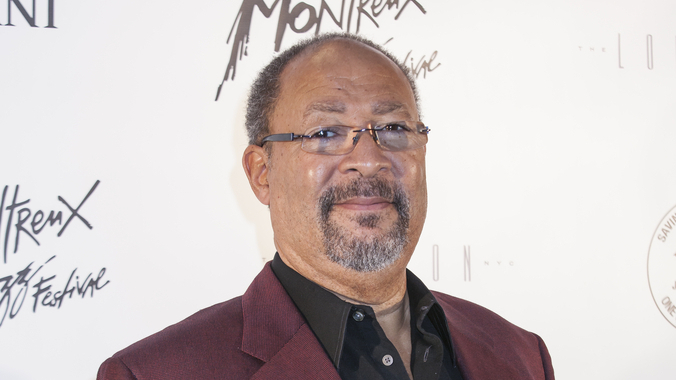Richard Parsons: A Visionary Leader Who Shaped Corporate America
Richard “Dick” Parsons, one of the most distinguished executives in the history of Corporate America, passed away at the age of 76, leaving behind a legacy of transformative leadership and unparalleled resilience. Throughout his career, Parsons was at the helm of some of the world’s most influential corporations, steering them through times of adversity and positioning them for long-term success. From Time Warner and Citigroup to his public service roles, Parsons’ influence spanned industries, demonstrating his exceptional ability to inspire trust, innovate strategically, and navigate complex challenges.
This article delves into the remarkable journey of Richard Parsons, offering insights into his life, career, and the lasting impact he had on the business world.
Early Life and Education: Foundations of Leadership
Born on April 4, 1948, in Brooklyn, New York, Richard Dean Parsons grew up in a working-class household in South Ozone Park, Queens. His father was an electrician, and his mother was a homemaker. Despite their modest means, the Parsons family emphasized education and hard work, values that Richard would carry throughout his life.
A precocious child, Parsons excelled academically, skipping two grades in elementary school and graduating from high school at the age of 16. He attended the University of Hawaii, where he played basketball and earned a degree in history. It was also in Hawaii that he met Laura Ann Bush, whom he married in 1968. His academic journey culminated in his graduation at the top of his class from Albany Law School in 1971, setting the stage for a career defined by both intellectual rigor and exceptional leadership.
Public Service: Early Lessons in Governance and Negotiation
Parsons began his career as a legal advisor to New York Governor Nelson Rockefeller, a role that provided him with an invaluable education in governance and public policy. When Rockefeller ascended to the role of U.S. Vice President, Parsons joined him in Washington, D.C., serving as a White House aide under President Gerald Ford.
During this time, Parsons honed his skills in negotiation and crisis management—abilities that would later define his corporate leadership. He also cultivated a deep understanding of the interplay between politics and business, an insight that informed his strategic decisions in the private sector.
After his tenure in Washington, Parsons returned to New York, joining the prestigious law firm Patterson, Belknap, Webb & Tyler. His meteoric rise to partner reflected not only his legal acumen but also his natural ability to lead and inspire confidence in those around him.
The Corporate Ascent: Dime Savings Bank and Beyond
Parsons transitioned to the corporate world with Dime Savings Bank of New York, where he served as CEO. At the time, the bank was struggling with financial challenges, but Parsons quickly demonstrated his aptitude for revitalizing organizations. Under his leadership, Dime Savings Bank regained its footing, earning Parsons a reputation as a turnaround expert.
His success at Dime Savings Bank opened doors to larger roles in the corporate world, culminating in his appointment as CEO of Time Warner in 2002.
Time Warner: A Period of Transformation
When Parsons took the helm of Time Warner, the company was reeling from its ill-fated $165 billion merger with AOL. The merger, which was intended to capitalize on the burgeoning internet economy, had instead left Time Warner saddled with debt and internal discord.
Parsons approached the challenge with his trademark calm and strategic clarity. Under his leadership, Time Warner reduced its debt by nearly 50%, refocused on its core media and entertainment assets, and restored investor confidence. He also fostered a culture of collaboration, bridging divisions within the company and aligning its various business units toward a shared vision.
“Richard Parsons brought stability and a sense of purpose to Time Warner during one of the most turbulent periods in its history,” said a former colleague.
Parsons’ tenure at Time Warner not only stabilized the company but also positioned it for future growth, cementing his legacy as one of the most effective leaders in the media industry.
Citigroup: Navigating the Great Recession
In 2009, Parsons was appointed chairman of Citigroup amid the fallout from the 2008 financial crisis. The banking giant was grappling with significant challenges, including government bailouts and public scrutiny. Parsons once again stepped into a leadership role during a time of crisis, guiding Citigroup through a complex restructuring process.
Under his leadership, Citigroup stabilized its operations, regained investor confidence, and emerged from the crisis as a more resilient institution. His ability to inspire trust and build consensus was instrumental in navigating the bank through one of the most challenging periods in its history.
A Broader Influence: Public Service and Cultural Leadership
Parsons’ contributions extended far beyond the boardroom. He served as an economic adviser to President Barack Obama, offering guidance on policies aimed at fostering economic recovery and growth. He was also a key figure in Michael Bloomberg’s transition team when Bloomberg became mayor of New York City.
In addition to his public service, Parsons was deeply involved in cultural and philanthropic initiatives. He held board positions at esteemed institutions such as the Museum of Modern Art (MoMA) and Estee Lauder, reflecting his commitment to fostering innovation and supporting the arts.
His passion for sports led him to serve as interim CEO of the Los Angeles Clippers in 2014, where he provided steady leadership during a period of controversy and transition.
The Legacy of Time Warner: A Historical Context
Parsons’ leadership at Time Warner is best understood within the context of the company’s storied history. Founded in 1923 by the Warner brothers—Harry, Albert, Sam, and Jack—the company revolutionized the film industry with the introduction of synchronized sound in films. Over the decades, Warner Brothers became one of Hollywood’s most iconic studios, home to stars like Humphrey Bogart and Bette Davis.
In 1990, Warner Communications merged with Time Inc. to form Time Warner, a media powerhouse with assets spanning film, television, and publishing. However, the merger with AOL in 2000 marked a challenging period for the company, one that Parsons would later address with remarkable success.
Related: Neil Cavuto Departs Fox News After Nearly Three Decades: A Legacy of Integrity and Fair Reporting
Parsons’ Leadership Philosophy: Inclusivity and Innovation
Throughout his career, Parsons emphasized the importance of inclusivity and empowering individuals to contribute their best work. He often downplayed the significance of his race, focusing instead on his ability to connect with people and solve problems.
“He had a unique ability to bring people together,” noted NBA Commissioner Adam Silver. “Whether in the boardroom or on the basketball court, Dick had a way of making everyone feel heard and valued.”
A Lasting Legacy
Richard Parsons’ life and career exemplify the power of leadership, resilience, and vision. From revitalizing struggling companies to advising world leaders, he left an indelible mark on Corporate America and beyond.
As the business world reflects on his contributions, Parsons’ legacy will undoubtedly inspire future generations of leaders to approach challenges with integrity, creativity, and a focus on making a meaningful impact.
Through his transformative leadership at Time Warner, his steady hand at Citigroup, and his dedication to public service and cultural advancement, Richard Parsons demonstrated that true leadership transcends industries—it is about empowering people, navigating change, and building a legacy that endures.









